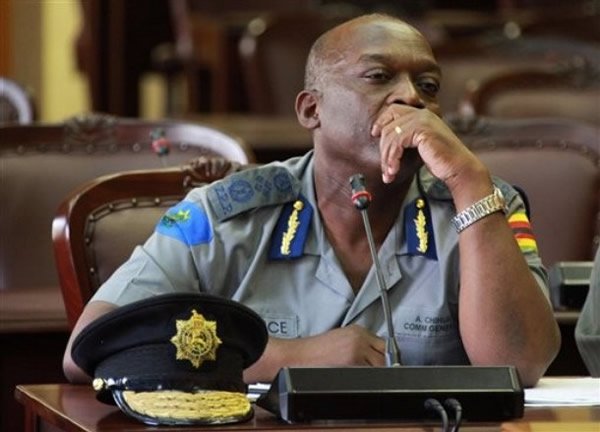- WICKNELL CHIVAYO left school at 15
- DISGRUNTLED Zimbabwe police stage uniform protest.
- MNANGAGWA wife Auxillia drops charges against nine women who boed her in Manicaland
- O.J. Simpson dies of cancer , aged 76.
- South Africa ANC is the cause of ZIMBABWE troubles claims Zimbabwe opposition politician Job Sikhala
Two (ZNA) Soldiers (Police Shooting Victims) Win Case Against Zimbabwe Republic Police (ZRP)

TWO Zimbabwe National Army (ZNA) servicemen have won a case against the Zimbabwe Republic Police (ZRP) in which they were challenging a section of the law that gives preferential treatment to the law enforcement agents.
In a landmark case, High Court judge Justice Amy Tsanga ruled that section 70 of the Police Act, which places a cap of an eight-month period within which police should be sued, is inconsistent with the country’s supreme law.
The two soldiers, Michael Munyika and Chrispen Tobaiwa, who were represented by Tendai Biti of Tendai Biti Law, argued that the section was discriminatory.
According to court papers, on July 19, 2014, police shot the two after suspecting them to be robbers as they travelled in a truck along with others to Karoi from work.
Officers stationed at Banket Police Station led by Inspector Damburai (third respondent) and Constable Lisborne Chibanda (fourth respondent) ordered the travelling party to surrender while pointing FN rifles at them.
Munyika, the first applicant, lost a right hand finger and was also shot in the chest.
The bullet remains lodged in his body.
He is suing Home Affairs minister Ignatius Chombo, Police Commissioner-General Augustine Chihuri, Damburai and Chibanda for $382 725.
Tobaiwa, who was shot in the leg, is demanding special damages amounting to $572 725.
Munyika, according to court papers, also sustained injuries to his ribs behind the right arm.
They notified the police of their intention to sue, but delayed serving papers due to the time they spent in hospital.
The summons were only issued 11 months after the incident.
Both applicants indicated that there had been negotiations between the ZNA relevant authorities and the police until December 2014 “when the applicants realised that the respondents were just buying time”.
“Both applicants rightly emphasise that the lengthy period in hospital had a fundamental impact on their ability to fully pursue their claims,” Justice Tsanga ruled. “What is apparent from the facts is that there was largely an awareness of the law at least on the lawyer’s part and that despite this, the delay in the actual issuance and subsequent service of the summons appears to have been lawyer-driven.”
Biti, according to Justice Tsanga, argued that by giving police preferential treatment in terms of the time period within which claims must be instituted against them, the underlying argument was that implicit therein was the absence of equal protection and benefit of the law.
“In other words, by giving special protection to the police, this piece of legislation is an exemplar of positive discrimination in favour of the police, on one hand, which certainly results, on the other hand, in negative discrimination against ordinary citizens with claims against them,” the applicants’ lawyer argued.
Justice Tsanga urged police to accept change and review their strategies accordingly.
The matter was referred to the Constitutional Court for its “confirmation or otherwise”. By Richard Chidza. source Newsday.
Photo-, Police Commissioner-General Augustine Chihuri,